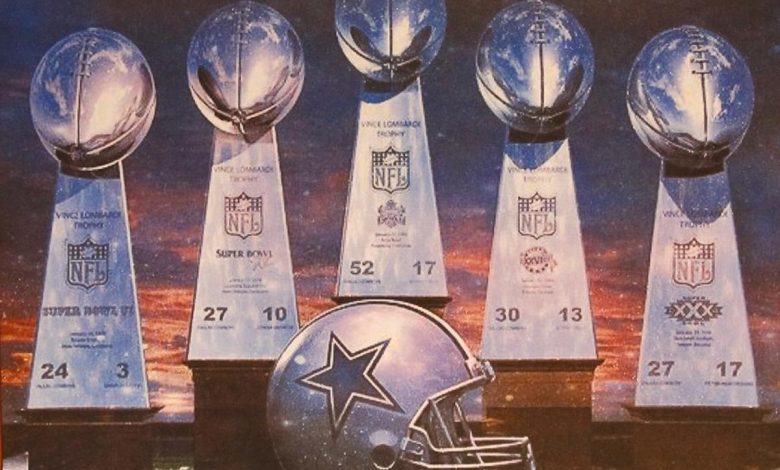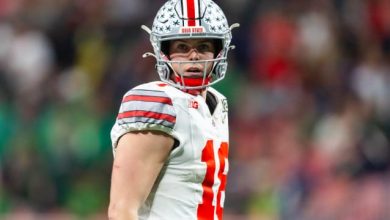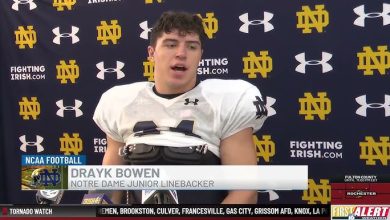How many titles have the Dallas Cowboys won since their most recent Super Bowl victory?

How Many Titles Have the Dallas Cowboys Won Since Their Most Recent Super Bowl Victory?
The Dallas Cowboys, one of the most iconic and storied franchises in the history of the National Football League (NFL), are a team that has etched its name in the annals of professional football. Known for their “America’s Team” moniker, the Cowboys have been the subject of adulation and scrutiny alike throughout the decades. Since their most recent Super Bowl victory in 1995, many have eagerly awaited the franchise’s return to the pinnacle of NFL success: the Super Bowl.
However, despite making notable strides in the playoffs and having sustained periods of competitiveness, the Cowboys have not captured another Super Bowl title since their 1995 win. To understand the trajectory of the franchise since that last Super Bowl championship, it’s important to explore the team’s performance in both the regular season and playoffs, as well as the organizational changes and the evolving NFL landscape.
In this article, we’ll take a deep dive into the Dallas Cowboys’ accomplishments, failures, and efforts to return to the Super Bowl since 1995, while reflecting on their overall legacy in the modern NFL.
The Dallas Cowboys’ Last Super Bowl Victory
The Cowboys’ last Super Bowl win came during the 1995 season when they defeated the Pittsburgh Steelers 27-17 in Super Bowl XXX. This victory marked the culmination of a dynasty in the early 1990s, a period when the Cowboys dominated the NFL. Under the leadership of head coach Barry Switzer, who replaced the legendary Jimmy Johnson, and with key players like quarterback Troy Aikman, running back Emmitt Smith, wide receiver Michael Irvin, and defensive stars like Deion Sanders and Charles Haley, the Cowboys were able to assert their dominance.
This victory was their third Super Bowl win in just four seasons (following Super Bowl XXVII in 1992 and Super Bowl XXVIII in 1993), solidifying the Cowboys’ position as one of the most successful franchises of the 1990s. But after that victory, the team entered a period of transition, and it would prove to be a challenging road for the Cowboys to reclaim their former glory.
The Struggles of the Post-Super Bowl Era
After their third Super Bowl title in 1995, the Dallas Cowboys experienced several ups and downs. The franchise was at a crossroads, as the 1990s came to a close, and their once-dominant roster began to show signs of aging and fragmentation.
Declining Performances in the Late 1990s
In the years immediately following their Super Bowl victory, the Cowboys’ performance began to falter. The team faced salary cap issues, which resulted in roster changes that weakened the talent pool. Aikman, Irvin, and Smith—three key pillars of the Cowboys’ offense—were no longer in their prime. The team also saw a revolving door of coaches, with Barry Switzer, who won the 1995 Super Bowl, being replaced by Chan Gailey in 1998. Despite Gailey’s attempts to retool the team, the Cowboys failed to find consistent success.
During the late 1990s, the Cowboys made the playoffs only sporadically and were unable to advance past the wild card round. The team had difficulty finding a long-term quarterback to replace Aikman, and injuries plagued key players, further contributing to their struggles. Though the team had individual stars like running back Emmitt Smith and linebacker Dat Nguyen, the overall performance of the team suffered, and the Cowboys did not make a Super Bowl appearance in these years.
The Early 2000s: Continued Struggles and Organizational Changes
The early 2000s brought further turmoil for the Cowboys, including an uncertain quarterback situation and difficulties in rebuilding the team’s defense. After several years of instability, the team hired Bill Parcells as head coach in 2003. Parcells, a respected figure in the NFL, sought to change the culture of the Cowboys and restore the team’s championship pedigree. Under Parcells, the Cowboys improved their win-loss record and made the playoffs in 2003 and 2004.
Despite the improvements, the Cowboys were unable to make it past the divisional round, and the search for a Super Bowl appearance continued. The team’s inability to capture an NFC Championship and return to the Super Bowl left many wondering if they would ever again rise to the same level of success they enjoyed in the 1990s.
The Romo Era: A Period of Promise, But No Championship
In 2003, the Cowboys drafted quarterback Tony Romo, who would go on to become one of the franchise’s most notable quarterbacks. Romo brought hope to a team that had struggled to find stability at the quarterback position since Troy Aikman’s retirement after the 2000 season. Romo was talented and capable of making spectacular plays, but he was also plagued by inconsistency and postseason struggles.
Despite his impressive individual statistics and numerous regular-season victories, Romo’s teams were unable to capture the ultimate prize—an NFC Championship or a Super Bowl victory. Under his leadership, the Cowboys had some strong seasons, with notable playoff appearances in 2007, 2009, and 2014. However, each time, the Cowboys came up short, either losing in heartbreaking fashion or being outplayed by more seasoned teams.
One of the most memorable—and painful—moments in Romo’s career came in the 2006 NFC Divisional Round, when his fumbled snap on a potential game-winning field goal against the Seattle Seahawks is still one of the most iconic plays in Cowboys’ history for all the wrong reasons. Despite this, Romo continued to lead the Cowboys to several playoff appearances, and the team was viewed by many as one of the NFC’s more promising squads. However, the elusive Super Bowl victory remained just out of reach.
The 2007 and 2009 Seasons: Near-Misses
The 2007 season seemed to be the year the Cowboys could finally break through. With Romo at quarterback, the team finished with a 13-3 regular-season record and earned the number one seed in the NFC. However, the Cowboys were stunned in the divisional round by the New York Giants, who would go on to win the Super Bowl that year. The loss marked yet another near-miss for the Cowboys, and the frustration among the fanbase grew.
In 2009, the Cowboys once again looked primed for a deep playoff run, but they were again unable to secure the ultimate prize. Despite a solid defense and an offense led by Romo, the Cowboys fell short of Super Bowl contention.
Jason Garrett’s Leadership and Continued Playoff Heartache
After a tumultuous coaching search, Jason Garrett became the Cowboys’ head coach in 2011, after serving as the team’s offensive coordinator. Under Garrett, the Cowboys had some strong seasons, including a 12-4 record in 2014, which was capped off by an NFC East division title. However, the Cowboys fell short of Super Bowl contention again in 2014, most notably with a controversial call in the divisional playoff game against the Green Bay Packers. The infamous “Dez Bryant catch” play, in which Bryant appeared to make a game-winning catch but was ruled incomplete, was one of the most debated moments in recent Cowboys playoff history.
Despite having talent on both sides of the ball, including star players like running back Ezekiel Elliott and defensive lineman DeMarcus Lawrence, the Cowboys continued to underperform in the postseason. Their failure to get past the divisional round year after year led to an increasing sense of disappointment among fans.
The Dak Prescott Era: High Hopes and Continuing Playoff Struggles
In 2016, the Cowboys drafted quarterback Dak Prescott, who would go on to become the face of the franchise. Prescott’s arrival brought a fresh sense of optimism to the franchise, and his impressive play during his rookie season, alongside the dominance of running back Ezekiel Elliott, led the Cowboys to a 13-3 record and a playoff berth.
However, the Cowboys’ playoff aspirations were quickly dashed in the divisional round by the Green Bay Packers. Prescott and the Cowboys’ offense showed promise, but the team once again fell short in the postseason. This pattern would continue throughout Prescott’s tenure, as the Cowboys have had varying levels of success during the regular season but have repeatedly struggled in the playoffs.
Despite Prescott’s leadership and the team’s occasional playoff appearances, the Cowboys have failed to make it to a Super Bowl since 1995. The team has struggled with key injuries, inconsistent play, and coaching changes that have prevented them from reaching the NFL’s ultimate stage.









